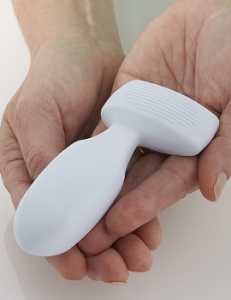The Pervasive Nature of Leaking: How Widespread It Is and How Talking About It Reduces Embarrassment and Shame
Urinary incontinence is a problem for many women around the globe. According to research from the National Institutes of Health, 3-17% of female patients report experiencing moderate to severe symptoms. Plus, as many as one in three women experience urinary incontinence for some time following childbirth.1
The Effects of Urinary Incontinence on Quality of Life
Incontinence is more than just a medical condition; it’s also a very personal and emotional struggle. It can cause you to avoid going out with friends, trying new experiences, spending long periods of time on a plane for travel, and other things you might otherwise readily enjoy.
Research has shown that urinary incontinence in women has a significant number of negative effects on their quality of life. Up to 23% of women take time off work as a result of their condition, and 25-50% of incontinent women experience some sort of sexual dysfunction. As a result, women dealing with urinary incontinence have a much greater risk of psychological distress and mental illness like depression.²
Tips for Normalizing Your Condition with Friends and Loved Ones
Those closest to you can often make lighthearted comments that hit a little too hard. The following tips can help you talk to your loved ones about your incontinence and how it affects you:
- Talk to friends and family about the impact of their jokes. Comments about “peeing a little” when you laugh may have good intent, but if it makes you feel uncomfortable, you should let them know.
- Be open to answering questions about how urinary incontinence works. Sometimes being educated in the medical aspect of a condition can help demystify it for those around you and make it easier to discuss.
- Let your friends know what your limitations and concerns are, but make sure they know it doesn’t have to be “the elephant in the room.” Talk to your friends about planning bathroom breaks into your group excursions if need be.
- Be open with your partner about what you’re dealing with and how you’re feeling. Share any worries and help your partner understand how much it affects your life and how important his or her support can be.
 Reduce Leakage and Improve Urinary Control with PeriCoach
Reduce Leakage and Improve Urinary Control with PeriCoach
One of the most recommended methods for fighting incontinence in female patients are regularly performed pelvic floor muscle exercises (PFME), also known as Kegels. Unfortunately, the vast majority of women fail to perform them properly or on a consistent basis, never seeing the benefits that bladder retraining exercises can provide (urinary control, improved sexual health, etc.). That’s where PeriCoach comes in.
PeriCoach is a unique coaching and tracking system that helps women do pelvic floor muscle exercises correctly and regularly. With the help of a convenient phone app and easily inserted vaginal biofeedback sensor, women can make sure that they’re properly performing their Kegels and getting them in on an appropriate schedule.
To learn more about PeriCoach or order a system of your own, call us today at (844) 205-0767!
Sources


